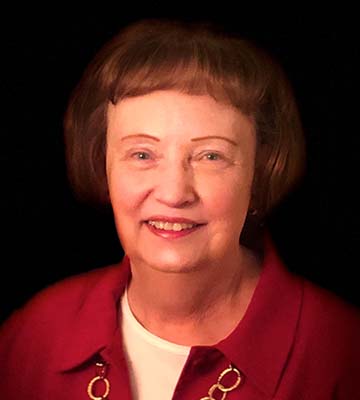Community Leader Proud to Be Part of Tri-C’s First Graduating Class
 When Cuyahoga Community College opened in 1963, Carol Schupp Ward was looking to pursue a career as a teacher, but attending a four-year college just wasn’t possible due to tuition costs.
When Cuyahoga Community College opened in 1963, Carol Schupp Ward was looking to pursue a career as a teacher, but attending a four-year college just wasn’t possible due to tuition costs.
Ward found out about Tri-C through her part-time job at Modern Mail Service on Carnegie Avenue, not far from the College’s original location in the Brownell Building on Huron. The company was performing all the printing for the new College.
That summer, she was among the very first students to register for classes at Tri-C. Ward felt privileged.
“It was such a unique experience,” she said. “There was one cafeteria for both students and teachers, including [College president] Dr. Chapman and all the other administrators.”
In addition to attending classes and working, Ward became involved in student government as a member of the Tri-C Student Cabinet, helped various student groups with their charters and joined with other students to rally for the first levy.
In 1965, Ward and 83 other students comprised Tri-C’s first graduating class. After earning an Associate of Arts degree, she worked for a chemical company. She also became involved in the community as a volunteer for the American Red Cross, Business & Professional Women of Ohio, Cleveland Lakefront State Park and Girl Scouts of North East Ohio. She even ran for Lakewood City Council.
However, Ward never forgot her Tri-C roots. She served as the first president of Tri-C’s Alumni Association, raising money for scholarships and assisting with decisions on ballot issues. She also volunteered for the Women’s Student Aid Committee in the 1960s and 1970s, raising funds for scholarships and representing the group on stage at commencement ceremonies.
Other members of Ward’s family maintain the same enthusiasm for Tri-C. She met Wallace, her husband of 50 years, at a College dance. Their daughter Theresa taught at Tri-C, and their granddaughter Alyssa graduated from the College in Spring 2019.
Ward feels her Tri-C experience helped her develop confidence and expanded her opportunity to serve the community. She fondly remembers what Chapman told her and her fellow graduates at that first commencement ceremony: “All of you will leave the College better prepared to assume a meaningful role as an individual, in marriage and as a citizen.”
“Tri-C changes people’s lives,” Ward said. “Students feel supported by professors who want them to be successful.”
